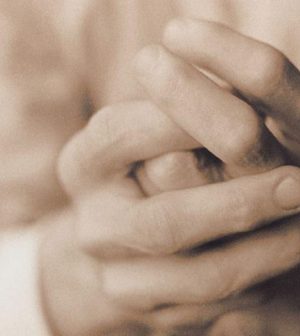- The Best Time of Day to Drink Bone Broth to Maximize Health Benefits
- 8 Ways to Increase Dopamine Naturally
- 7 Best Breads for Maintaining Stable Blood Sugar
- Gelatin vs. Collagen: Which is Best for Skin, Nails, and Joints?
- The Long-Term Effects of Daily Turmeric Supplements on Liver Health
- Could Your Grocery Store Meat Be Causing Recurring UTIs?
- Are You Making This Expensive Thermostat Error This Winter?
- Recognizing the Signs of Hypothyroidism
- 10 Strategies to Overcome Insomnia
- Could Artificial Sweeteners Be Aging the Brain Faster?
Annoyed When Watching Others Fidget? You’re Not Alone

If other people’s fidgeting drives you nuts, you may be one of many people with a condition called misokinesia, which means “hatred of movements,” Canadian researchers report.
They conducted experiments with more than 4,100 people and found that about one-third have the condition.
Typically, folks with misokinesia “experience reactions such as anger, anxiety or frustration” watching other fidget, said study senior author Todd Handy, a psychology professor at the University of British Columbia (UBC).
Some even “report difficulty and reduced enjoyment in social situations, work and learning environments,” he said in a university news release. In some cases, people might “even pursue fewer social activities because of the condition,” Handy said.
The effects of the condition appear to increase with age, Handy added.
“This study is the first of its kind on misokinesia,” said study lead author Sumeet Jaswal, a Ph.D. student in UBC’s department of psychology. “Surprisingly, scientific research on the topic has been lacking.”
Mirror neurons may play a role in misokinesia. These brain cells activate when a person moves, but they can also activate when a person sees others move.
“These neurons help us understand other people and the intention behind their movements,” Jaswal explained in the release. “They are linked to empathy. For example, when you see someone get hurt, you may wince as well, as their pain is mirrored in your own brain and that causes you to experience their emotions and empathize with them.
“A reason that people fidget is because they’re anxious or nervous, so when individuals who suffer from misokinesia see that, they may mirror it and feel anxious or nervous as well,” she added.
This aspect and possible genetic components to misokinesia are future research goals for the study authors.
“To those who are suffering from misokinesia, you are not alone. Your challenge is common and it’s real. As a society, we need to recognize that a lot of you suffer silently from this visual challenge that it can adversely impact your ability to work, learn in school and enjoy social situations,” Handy said. “It’s a widely shared challenge that no one has ever really talked about. By starting this discussion, there is reason for hope in better understanding and outcomes.”
More information
For more on misokinesia, go to Misokinesia.ca.
SOURCE: University of British Columbia, news release, Aug. 31, 2021
Source: HealthDay
Copyright © 2026 HealthDay. All rights reserved.










